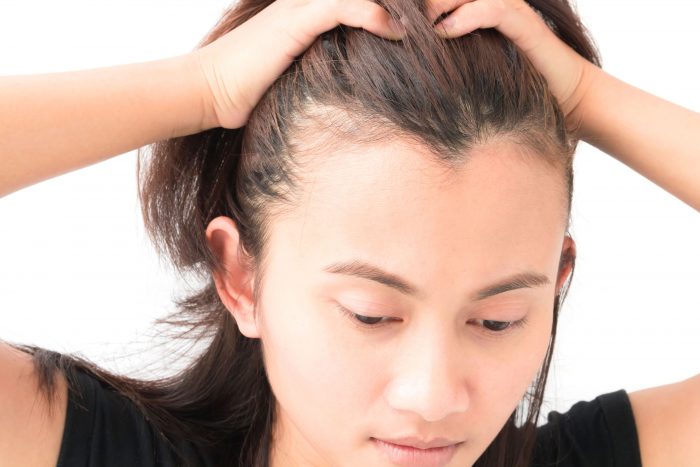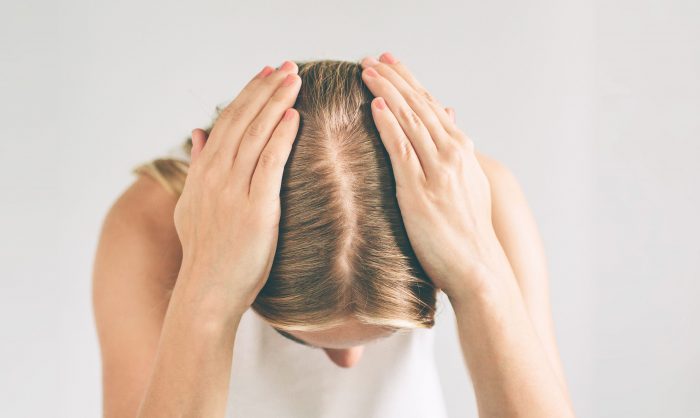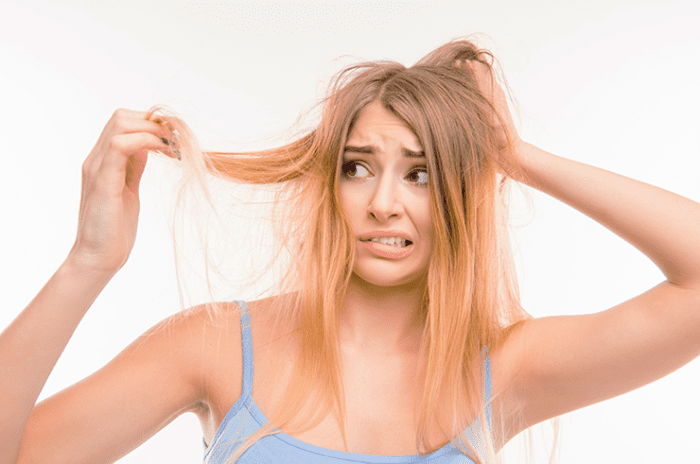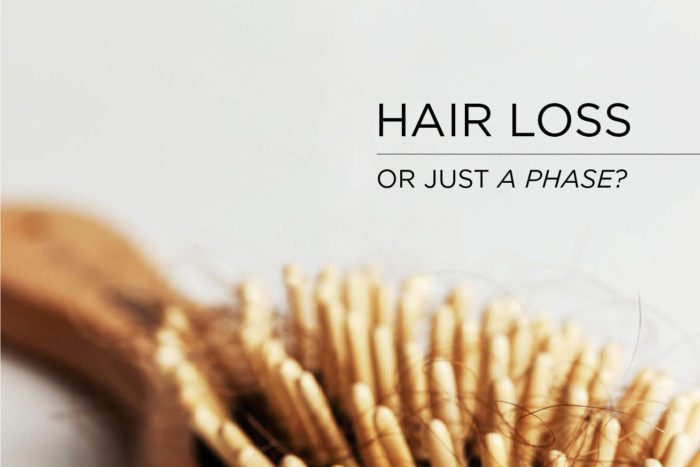Are you a woman losing hair? Yes, women lose hair and we don’t even know it. We do not lose hair like men do. But answer these truthfully:
- Have you noticed that the parting of your hair has become wider?
- Do you find more strands than before in the brush, shower or pillow?
- Does your hair feel less dense when wearing a ponytail?
- Is your hairline looking uneven?
If you answered yes to at least one of the above questions, then, like me, you are losing hair.

Is it hair loss or just a phase?
Most of us shed hair a little at a time — pretty much all the time. But sometimes a larger-than-usual clump of hair, trapped in your brush or clogging your shower drain, surprises you. Then you wonder, “Am I losing hair permanently?”
The real question should be: “What’s behind my hair loss?”
If you feel like you’re losing an excessive amount of hair, talk to your doctor. You’ll need an evaluation. More than half of all women experience noticeable hair loss over time.
Causes of temporary hair loss
You can avoid hair loss and promote regrowth when hair loss is temporarily caused by:
- • Tight hairstyles. Tight ponytails, braids and cornrows can all cause hair loss and damage the follicles, which regulate hair growth. Changing hairstyles can help prevent thinning. But beware: When the follicles sustain too much damage, hair loss can be permanent.
- • Extreme physical shock/stress. Dramatic changes in the body can cause temporary hair loss. Giving birth, rapid weight loss, surgery and certain illnesses may cause more hair loss than usual, typically in the resting phase. But hair should grow back over time.
- • Medical therapies and toxic substances. Chemotherapy, certain other drugs and radiation treatments can prompt hair loss, mainly in the growth phase. Hair loss can strike suddenly, anywhere in the body. It is typically temporary (unless the follicles are damaged).
- • Nutritional deficiencies. Not getting enough iron, protein or vitamin B12 in your diet can also cause your hair to thin. If this happens to you, talk to your doctor about supplements.

Causes of permanent hair loss
Hormonal imbalances before, during and after menopause can lead to more permanent hair loss, Dr. Simpson says. Female pattern baldness is largely genetic, affecting hair along the top of a woman’s head. This typically begins when estrogen levels drop. A scalp injury that causes scarring can also cause permanent hair loss, she says.
How to combat hair loss as you age
“The healthier your body, the healthier your hair,” notes Dr. Simpson. Her basic tips for staying healthy and having healthy hair over the years include:
- • Staying well-hydrated
- • Getting enough sleep
- • Exercising regularly
If your hair is thinning, your doctor may recommend taking biotin, iron or other supplements, microneedling or massaging 5 percent minoxidil into your scalp once daily, she says.
Advanced treatments like PRP, POD or Surgery are available for more serious hair loss.

Talk to your doctor
Hair loss can be frustrating for women. But consult your doctor before you start to worry; thinning hair is often reversible, Dr. Simpson says.
“If you are a woman losing hair, give your doctor a full hair history — when the thinning began, where and how extensive the thinning is, and any relevant symptoms,” she says.
“It’s the best way to determine if hair loss is from shedding or breakage, which helps determine treatment.”

